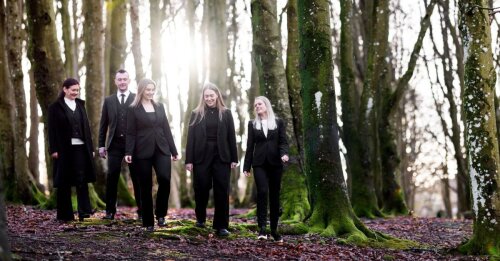Best Collaborative Law Lawyers in Stavanger
Share your needs with us, get contacted by law firms.
Free. Takes 2 min.
Free Guide to Hiring a Family Lawyer
List of the best lawyers in Stavanger, Norway
About Collaborative Law in Stavanger, Norway
Collaborative Law is an alternative dispute resolution method that allows parties to resolve legal issues outside of traditional court proceedings. In Stavanger, Norway, Collaborative Law is commonly used in family law cases, such as divorce, custody, and division of assets. This approach emphasizes open communication, mutual respect, and voluntary settlement, enabling both parties to reach amicable agreements with the assistance of specially trained Collaborative Lawyers. The primary goal is to prevent adversarial confrontations and preserve relationships, particularly important when children are involved or when future interactions between parties are unavoidable.
Why You May Need a Lawyer
People in Stavanger may seek a Collaborative Lawyer for several reasons. Common situations include separation or divorce, establishing or modifying child custody arrangements, dividing family property, and resolving other family-related disputes. Collaborative Law also applies in some business contexts, such as dissolutions of partnerships. A lawyer trained in this practice can guide parties through negotiations, ensure fair outcomes, and safeguard their legal rights. Hiring a Collaborative Lawyer can be especially important when emotions run high or complex financial or legal matters are involved. The lawyer’s role is to facilitate communication, keep negotiations productive, and help parties reach agreements that are legally sound and enforceable.
Local Laws Overview
Norwegian law encourages amicable settlement of disputes, especially in family law. Local Stavanger courts require parties to attempt mediation before certain family disputes proceed to litigation. Collaborative Law, while not mandatory, is consistent with this emphasis on out-of-court solutions. Lawyers practicing Collaborative Law in Stavanger must adhere to the Norwegian Bar Association’s ethical guidelines and usually have specialized training in collaborative techniques. Agreements reached through Collaborative Law have legal standing if properly documented and, where required, approved by the relevant court. Notably, discussions during a Collaborative Law process are confidential, and if negotiations break down, Collaborative Lawyers cannot represent either party in subsequent litigation, ensuring a commitment to settlement-focused resolution.
Frequently Asked Questions
What is the main difference between Collaborative Law and traditional litigation?
Collaborative Law is a voluntary process focused on negotiation and mutual agreement outside of court. Traditional litigation involves formal court proceedings and a judge’s decision.
Is Collaborative Law legally recognized in Norway?
Yes, Collaborative Law is an alternative dispute resolution process supported by Norwegian law, provided the resulting agreements comply with statutory requirements.
Do both parties need a Collaborative Lawyer?
Yes, each party must have their own Collaborative Lawyer to ensure balanced advice and full participation in the process.
What types of cases are suitable for Collaborative Law?
Collaborative Law is most commonly used in family law matters such as divorce, child custody, and property division, but can also be applied in some business and civil disputes.
What happens if the collaborative process fails?
If the process fails, both Collaborative Lawyers are disqualified from representing the parties in any future court proceedings concerning the same matter.
Are agreements reached through Collaborative Law enforceable?
Yes, provided they meet legal requirements and, where necessary, are confirmed by a court or relevant authority.
How is confidentiality handled in Collaborative Law?
All discussions and negotiations during the collaborative process are confidential and cannot be used as evidence if the matter proceeds to court.
How long does the Collaborative Law process take?
The duration varies depending on the complexity of the case, but it is often faster than traditional litigation since it avoids lengthy court procedures.
Can children’s interests be represented in Collaborative Law?
Yes, the process always aims to prioritize the best interests of children, and courts may review agreements involving minors to ensure their welfare.
What qualifications should a Collaborative Lawyer have in Stavanger?
A Collaborative Lawyer should be a licensed attorney in Norway with specialized training or experience in alternative dispute resolution, particularly in the collaborative process.
Additional Resources
- The Norwegian Bar Association (Advokatforeningen): Offers directories of qualified Collaborative Lawyers. - The Courts of Norway (Domstolene i Norge): Information about mediation and legal processes. - Stavanger Mediation Centre (Stavanger Konfliktråd): Provides mediation and conflict resolution guidance. - Family Counselling Service (Familievernkontor): Professional support for families going through separation and dispute resolution.
Next Steps
If you believe Collaborative Law may help resolve your legal issue in Stavanger, consider the following actions:
- Identify and contact a local Collaborative Lawyer with relevant experience. - Gather necessary documents, such as financial records or agreements relevant to your case. - Schedule an initial consultation to discuss your situation and determine if Collaborative Law is suitable for your needs. - Remain open to honest communication and negotiation, as cooperation is key to a successful collaborative process. - If an agreement is reached, ensure it is properly documented and, when necessary, submitted to the appropriate authority for approval.
Collaborative Law offers a respectful and efficient way to resolve conflicts. By seeking qualified legal guidance, you can safeguard your interests and work toward equitable solutions outside the traditional courtroom setting.
Lawzana helps you find the best lawyers and law firms in Stavanger through a curated and pre-screened list of qualified legal professionals. Our platform offers rankings and detailed profiles of attorneys and law firms, allowing you to compare based on practice areas, including Collaborative Law, experience, and client feedback.
Each profile includes a description of the firm's areas of practice, client reviews, team members and partners, year of establishment, spoken languages, office locations, contact information, social media presence, and any published articles or resources. Most firms on our platform speak English and are experienced in both local and international legal matters.
Get a quote from top-rated law firms in Stavanger, Norway — quickly, securely, and without unnecessary hassle.
Disclaimer:
The information provided on this page is for general informational purposes only and does not constitute legal advice. While we strive to ensure the accuracy and relevance of the content, legal information may change over time, and interpretations of the law can vary. You should always consult with a qualified legal professional for advice specific to your situation.
We disclaim all liability for actions taken or not taken based on the content of this page. If you believe any information is incorrect or outdated, please contact us, and we will review and update it where appropriate.














